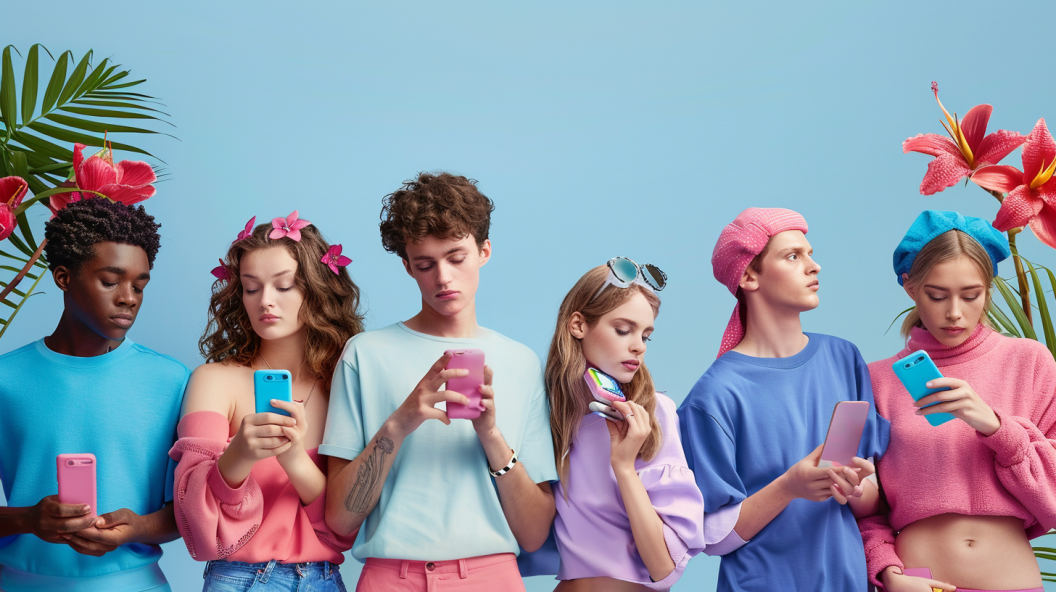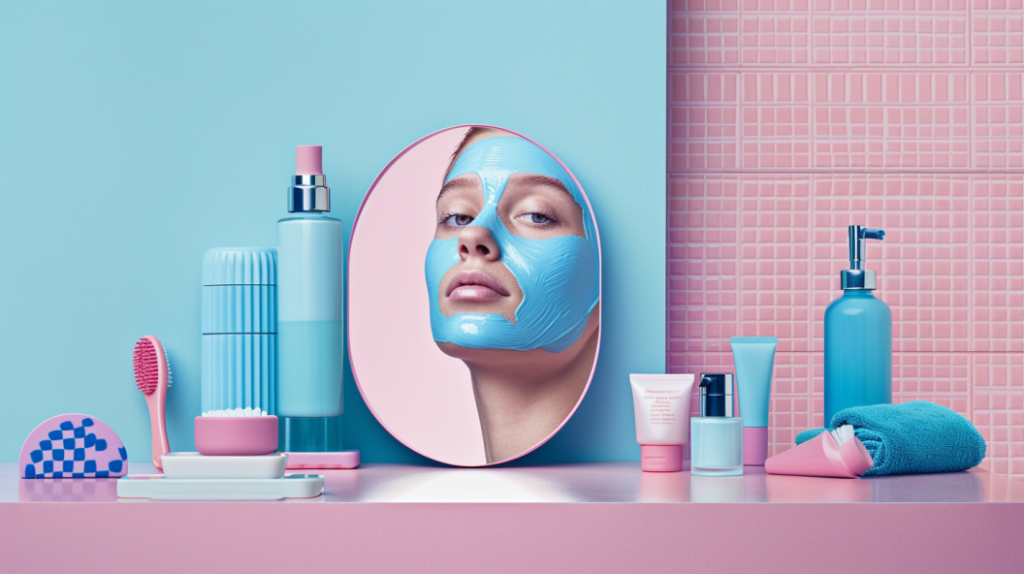The intersection of social media and skincare has birthed an intense fixation among Generation Z, propelled by platforms like TikTok where influencers showcase elaborate routines and endorse various products. This visual medium not only amplifies beauty standards but also drives young individuals to adopt anti-aging products prematurely and consider cosmetic procedures. The implications of such trends on dermatological health and self-esteem are profound, raising questions about the long-term effects of this digital influence. How do these practices shape their perceptions of beauty and skin health, and what does this mean for future generations?
Key Takeaways
- Influencers on TikTok popularize multi-step skincare routines among Generation Z.
- Teens heavily rely on social media for skincare advice and product recommendations.
- Early adoption of anti-aging products raises concerns about long-term skin health.
- Sensory engagement like appealing scents and packaging influences product choices.
- Societal and media-driven beauty standards increase pressure to conform and enhance appearance.
Influence of TikTok
The pervasive influence of TikTok has greatly shaped skincare habits among Generation Z, driving both the premature use of anti-ageing products and the adoption of elaborate skincare routines.
TikTok trends often feature influencers demonstrating multi-step skincare regimens and endorsing specific products, which can lead to the normalization of complex and sometimes unnecessary routines among young users.
The influencer impact is profound, as teens rely heavily on these personalities for skincare advice, often prioritizing visually appealing content over evidence-based practices.
This widespread dissemination of skincare routines and product endorsements has significant implications for dermatological health, potentially leading to misuse of products and a heightened focus on cosmetic enhancement rather than skin health maintenance.
Early Use of Anti-Ageing Products
Premature adoption of anti-ageing products among teenagers raises significant concerns regarding potential long-term dermatological effects and the psychological implications of early exposure to beauty standards.
Dermatologists warn that the use of potent anti-ageing substances, such as retinoids and alpha-hydroxy acids, without proper supervision may disrupt skin barrier function and cause irritation.
The psychological impact of early exposure to anti-ageing regimens can foster insecurities and perpetuate unrealistic beauty ideals.
Parental guidance is vital in maneuvering these trends, promoting a balanced approach to skincare that prioritizes skin health over aesthetic perfection.
Evidence suggests that informed parental involvement can mitigate the adverse effects associated with premature use of anti-ageing products in adolescents.
Factors Driving Product Choices
Influencing factors such as in-store experience, product visibility, and appealing scents notably drive skincare product choices among younger demographics. Research indicates that sensory engagement, including appealing scents, greatly impacts consumer preferences.
The tactile and olfactory elements encountered during an in-store experience can enhance product appeal, leading to higher purchase intentions. Additionally, product visibility, often amplified through strategic shelf placement and visually engaging packaging, plays an important role.
Evidence suggests that these factors collectively cater to the psychological and sensory needs of Gen Z consumers, who prioritize immediate gratification and multisensory engagement. Therefore, brands that excel in creating a compelling in-store experience and maintaining high product visibility are more likely to capture this demographic’s interest.
Societal Beauty Standards
Societal beauty standards, perpetuated by media and cultural norms, exert profound pressure on young individuals to conform to often unattainable ideals. These standards have a substantial impact on feminine identity and self-perception, compelling many to engage in rigorous skincare routines.
Evidence suggests that societal pressures are driving a surge in body modification practices, aimed at aligning with these beauty norms. Cultural expectations contribute to the normalization of altering one’s appearance, often through invasive and non-invasive measures.
Consequently, young individuals, particularly women, face heightened stress to meet these ideals, which are continuously reinforced through social media platforms. This phenomenon underscores the need for a critical examination of the societal constructs that shape beauty standards and their implications for mental health.
Rise of Cosmetic Procedures
The proliferation of cosmetic procedures among younger demographics can be attributed to the increased accessibility and aggressive marketing of treatments such as Botox and fillers. Cosmetic enhancements have become more prevalent due to their affordability and the normalization of such procedures on social media platforms.
Evidence indicates that these treatments, once reserved for older adults, are now sought by individuals in their twenties and even teens. Medical professionals express concerns about the long-term implications of early interventions. The rise in cosmetic procedures correlates with societal pressures to conform to idealized beauty standards, perpetuated by influencers and celebrities.
As the affordability of procedures lowers barriers to entry, a growing number of young individuals opt for these enhancements to emulate perceived perfection.
Conclusion
Social media’s pervasive influence on Generation Z‘s skincare habits is evident through the normalization of intricate routines and the premature adoption of anti-aging products. Platforms like TikTok and Instagram greatly shape product choices and reinforce societal beauty standards.
This phenomenon has led to an increase in cosmetic procedures among teens, driven by the desire for flawless skin. Further research is warranted to understand the long-term dermatological implications and to develop guidelines for healthier skincare practices among this demographic.



